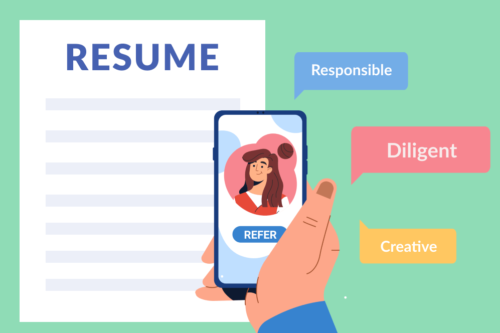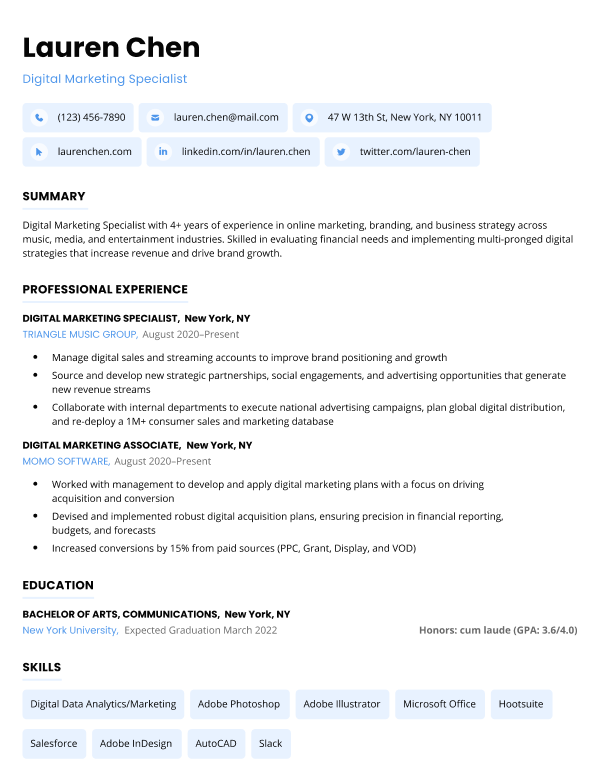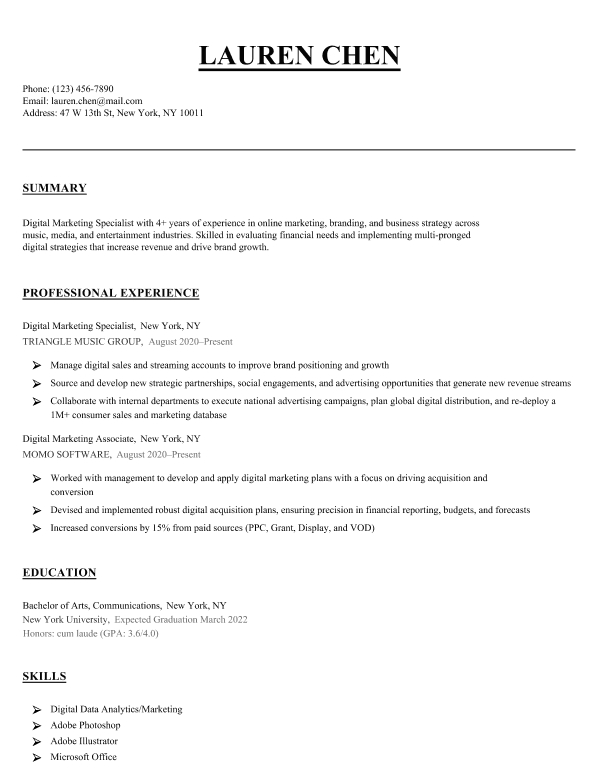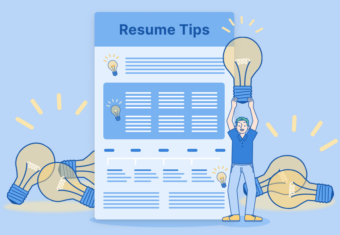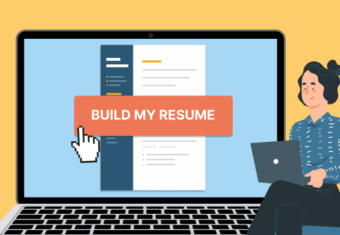If you’re confused about whether to include references when you make a resume for a job, you’re not alone. Whether or not to include references on a resume is one of the most commonly asked questions by job-seekers.
In this article, we’ll explain when to include references on your resume (and when not to), and how to make a references page.
Our free-to-use resume builder can make you a resume in as little as 5 minutes. Just pick the template you want, and our software will format everything for you.
Do you put references on a resume?
No, you don’t usually put references on a resume. Most employers don’t ask for references at the start of the hiring process, so you shouldn’t put references directly on your resume when you’re first applying for a job.
If employers are actually considering you as a candidate, they’ll request a detailed list of professional references from you later on in the hiring process.
The only times you must include references on your actual resume is if:
- the job description or hiring manager specifically requests it
- you’re writing a federal resume (because government agencies require each candidate to go through a strict screening process)
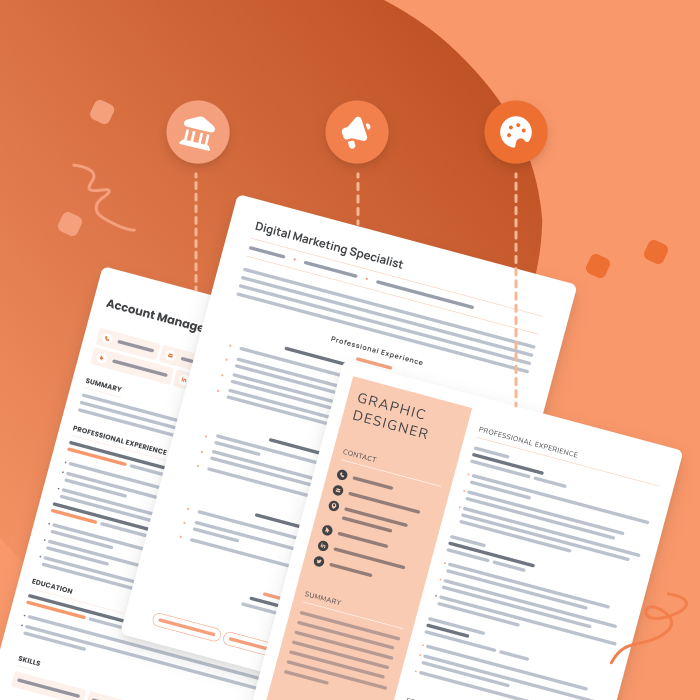
Resume examples for different industries
Not sure what your resume should look like? The best way to learn is by taking inspiration from resume examples written by other candidates in your industry.
Although there’s no need to provide your list of references right away, you should still prepare them beforehand in case you move quickly through the interview stages.
The main reason why you shouldn’t include references on your resume
Listing references directly on your resume takes up valuable space that could be better used to market yourself as the ideal applicant.
Instead, use the extra space on your resume to include essential resume parts like your:
How to make a reference page for your resume
Interested in learning how to make a reference page? Our in-house Career Expert Eva tells you exactly what steps to take in this video below:
To expand upon Eva’s advice, here are three straightforward tips for listing your references correctly:
1. Create a dedicated list of references separate from your resume
If you haven’t done this yet, gather your references onto a page and label it “Professional References.”
Having a dedicated references page that’s separate from your resume helps you stay organized.
Also, preparing your references early gives you the opportunity to hand in your reference sheet right when employers request it. Such preparation can increase your chances of moving forward in the job process.
Never add the phrase “Reference available upon request” on your resume. This outdated phrase takes up valuable space and restates what every hiring manager already knows.
2. Format your reference details with the most relevant person on top
After you’ve made a separate page for your professional references, format your reference page by including each reference’s name, title, organization, phone number, and email address.
Remember to list your most impressive or important reference at the top so employers are more likely to see their name and contact them first.
This is the standard way to list a reference:
How to format a professional reference on a resume
First and last name (bolding the font is optional)
Professional title
Company or university your reference works at
Full address of your reference’s company or university
Phone number
Email address
Your relationship with the reference (italicizing the font is optional)
Also, keep the formatting of your reference list similar to your resume format. Both resumes and reference lists are typed documents organized into distinct sections so employers can easily scan for the information they want.
When including a list of references with your resume, you can use the same formatting as your resume template or cover letter template to make your application look consistent and tidy.
3. Include the appropriate contact information for each reference
Providing accurate information on your list of references is essential because employers have several applications to sift through. If your reference details are unorganized or incorrect, they might move onto the next candidate.
Avoid lying when writing your resume because hiring managers will call your references to verify the details and data you provided.
So verify your references’ contact details are up-to-date by reaching out to them before you start applying to jobs.
Don’t include the personal address of your reference on your reference page because hiring managers will usually contact them by phone or email. Also, your reference may not want you to share their personal information with strangers either.
Underneath each entry on your resume’s reference page, make a note describing your relationship with the reference, and how long you’ve known or worked with them.
This is an example of a properly formatted resume reference:
Ryan Ramirez
Product Lead
Seashore Enterprises
2187 Clive Road, House Springs, Missouri 63940
(636) 423-2759
r.ramirez@seashore.comRyan was my direct manager from March 2018 until March 2020.
Now, you’re ready to attach your references page along with your application.
You can also hold onto your references sheet and only provide it when you reach the later stages of an interview.
Professional references template
If you want to save time formatting your reference page, have a look at our references list template for an idea of how to write yours:
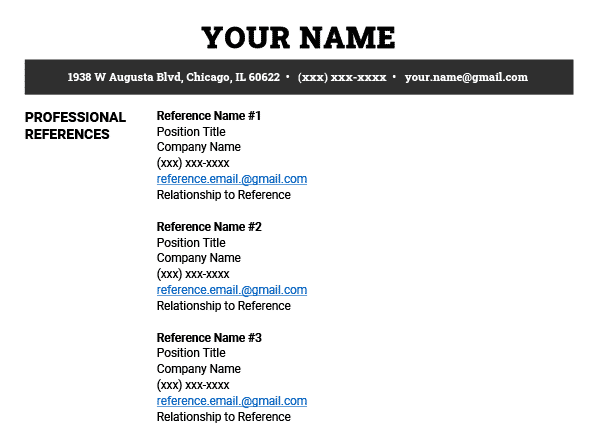
Professional References Template (Text Version)
Reference Name #1
Position Title
Company Name
(xxx) xxx-xxxx
reference.email@gmail.com
Relationship to Reference
Reference Name #2
Position Title
Company Name
(xxx) xxx-xxxx
reference.email@gmail.com
Relationship to Reference
Reference Name #3
Position Title
Company Name
(xxx) xxx-xxxx
reference.email@gmail.com
Relationship to Reference
Resume references example
Unsure what resume design you should use for your reference page? Check out this references example to see what a properly formatted references list looks like:
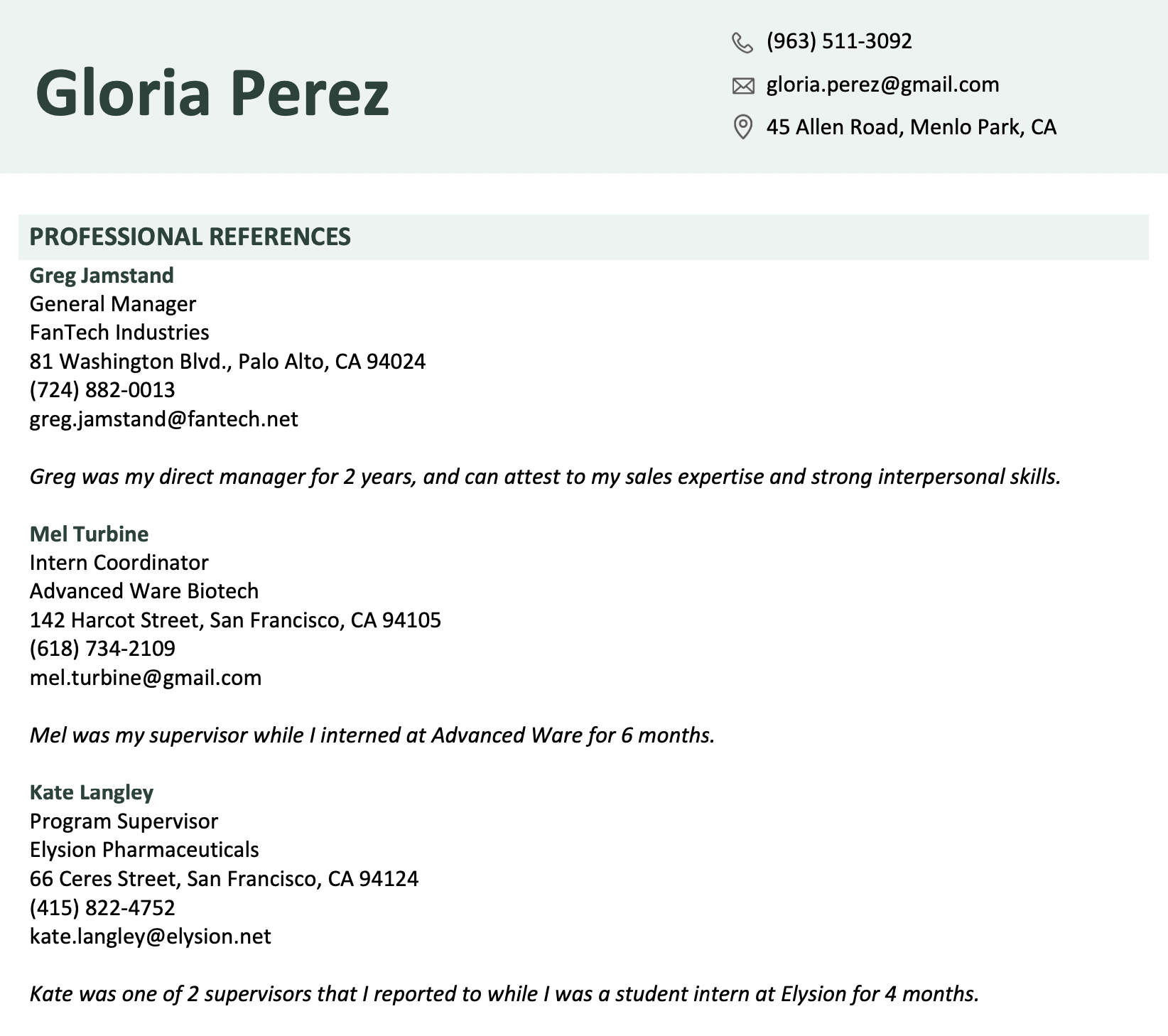
How many references should you have?
You should have 3–4 references listed on your reference page.
However, if you’re applying for a position that requires extensive vetting for a senior-level role, you can include 5–7 references to give hiring managers a clearer picture of your professional background.
Your references should prove your professional strengths and character to an employer. People you’ve worked with or studied with in the past generally work best as references.
Who to put as a reference
Many job seekers struggle when deciding who to put as their resume references. We’ve outlined answers to some of the most frequently asked questions about references so you can put together the strongest reference list possible.
1. Who are the best references for a job?
The best references for a job (in order of importance) are:
- bosses
- supervisors
- coworkers
- professors (if you’re writing a resume with no experience)
- advisors
If possible, list your current or former boss at the top of your references list. Most employers view supervisors or bosses as the most valuable references because they have the most insight into your work ethic, hard and soft skills, and professional strengths.
Additionally, consider the following details when choosing the other references on your resume:
- Which of my references are most relevant to the job I’m applying for?
- Do I have references that work in the industry I’m applying to?
- Which potential reference would best highlight my relevant skills?
- Who is not suited to give me a reference for this particular job?
2. Should you use a friend as a personal reference?
Generally, you shouldn’t include friends as a reference on your resume. However, listing your friend as a reference is acceptable if they’re:
- former colleagues
- currently employed at the company you’re applying to
- a former supervisor
3. Who should I use as a reference for a first job?
For a student or recent graduate, finding an appropriate set of professional references is difficult. So if you lack work experience and have no references, you can list a:
- teacher
- professor
- coach
- advisor
- intern coordinator
- guidance counselor
- family member or friend you’ve done work for
But before asking these people to be your reference, make sure they have enough experience working with you to offer a positive recommendation of your best skills.
At a minimum, each reference should be able to attest to the quality of your character, if not your professional strengths.
Finally, don’t forget to thank your references with a thank you note or a small token of your appreciation for taking the time to convince an employer you’re the right candidate for the position.
Click to rate this article
4.7 Average rating


